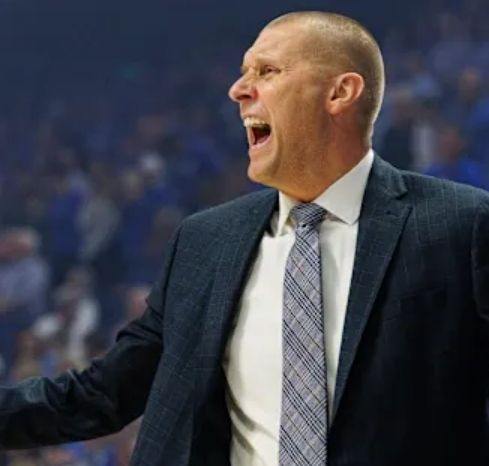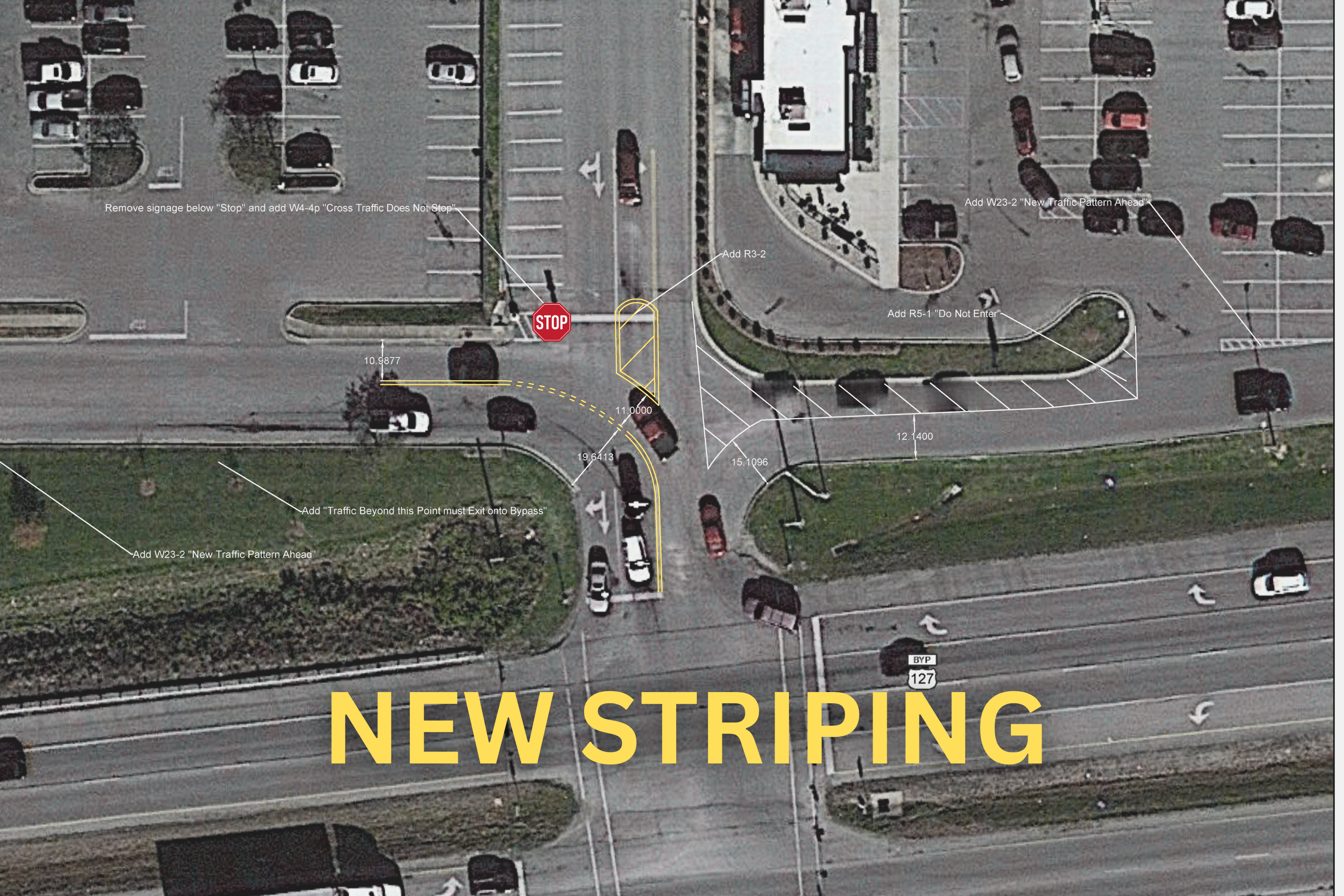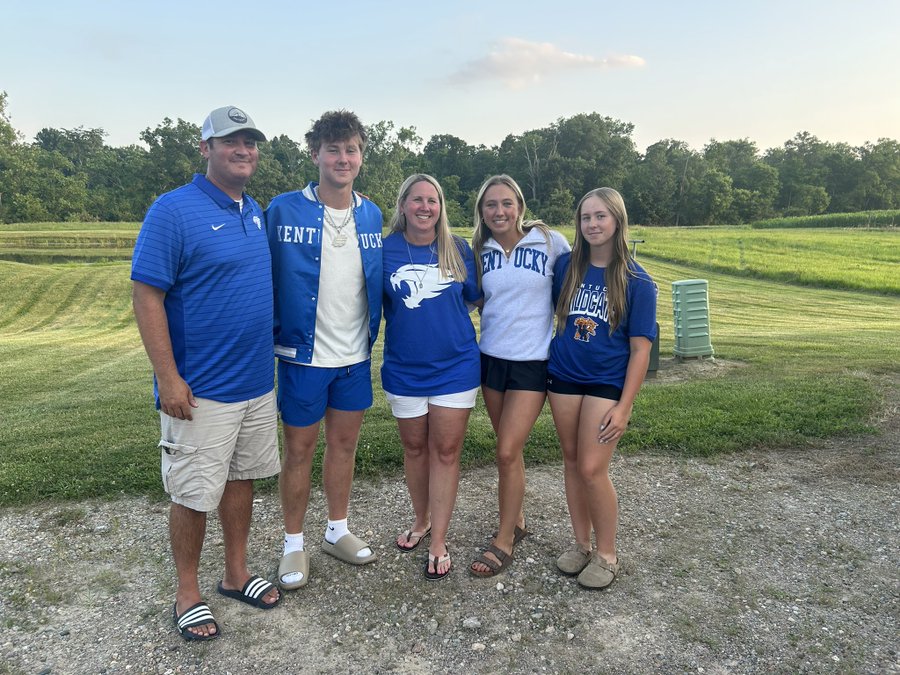Sports analytics giving Centre teams a leg up
Published 8:43 am Wednesday, October 4, 2023
NEWS RELEASE
Centre College
The story of sports has long been wrapped in the poetry of those sharing it.
Trending
A radio announcer makes us yearn for a summer afternoon at the ballpark as we listen to the roar of the crowd and the crack of a bat. We love players who have ice in their veins or fire in their bellies.
We talk about leadership and culture and grit. Who wants it more? Who has what it takes? Sports is presented emotionally — the joy of victory and the agony of defeat.
But you don’t have to be a poet to tell the story of sports. Ditch the colorful adjectives and flowery prose. There’s a story to be told with no words at all.
Students and faculty at Centre College are doing just that: They’re sorting statistics, crunching numbers and modeling data. They’re telling stories through probabilities and outcomes — the numbers behind the game.
Sports analytics is growing at Centre College, with coaches and players lining up to see what Jeff Heath, professor of mathematics and data science, and chair of the data science program, and his squad of students can do to give their teams an advantage.
‘We’d like to dive way deeper’
Trending
It all started as a spreadsheet developed by pitching coach Ryan Gaines.
Baseball has long been a step ahead in analytical data. It’s a game built on numbers, and naturally, Gaines wanted the best for his pitching staff. He looks at velocity, spin rate, vertical and horizontal break — variables that can tell the story of a pitcher’s success.
Gaines approached Heath about the pitching chart he had created — but knew there was more to the data that could make it easily digestible for his players.
Heath and his students took a look at Gaines’ spreadsheet, hoping to make the data more visually appealing to the athletes. A lifelong sports fan who had been researching sports analytics for more than 15 years, Heath knew there was potential for more. “We’d like to dive way deeper into this,” he told the coach.
Soon, a partnership between researchers and athletes emerged, and more and more sports teams were recruited to serve as a training ground for the students looking to cut their teeth on data analysis.
Heath, along with fellow mathematics professors Michael Lamar and Prayat Poudel, help lead a team of 12 students in the sports analytics program.
“I thought it’d be a great way to have that connection between academics and athletics,” Health said.
Beyond the classroom
Heath noted the sports analytics work Centre students are doing is a rarity at colleges, particularly at schools outside the world of big-time Division I college athletics.
“It’s very unique in Division III,” he said. “I’d say we are definitely one of — at most — a small handful of schools doing this level of analysis for our athletic programs.”
As the sports analytics program grows, so too do the students’ skills — no knowledge of sports required. In fact, that’s part of the beauty of the work the students do. Analyzing data to identify trends, inefficiencies and make better-informed decisions isn’t just helpful for coaches or athletes. It’s useful in any venture.
“Sports is just a natural and interesting venue, but we can use anything — these skills translate to any area of either business or other industry,” Heath said. “Sports is what we’re focused on, but these same data visualizations, their coding skills, the programming, all of that is translatable to the next level — whether that be graduate school or out working in the field.”
That’s already proven true for two of the sports analytics students. Ranjing Zhang ’23 and Cloe Spracklen ’23 presented data to the football coaching staff. Both students said they had little to no knowledge of football before the process began, and both have turned data analytics into postgraduate opportunities.
Zhang is pursuing a master’s degree in statistics at Columbia University, while Spracklen has started a job at Humana as a health informational management professional.
“During my interview, I was able to talk about the project we were doing this semester,” Spracklen said. “I was able to talk about what we were doing and the tools we use, like Python and RStudio. I think that doing these sports analytical projects not only gives us knowledge into sports, it also really teaches us to use the tools that we’ve been given and improve on those skills as well.”
Zhang and Spracklen created computer-generated visualizations of expected points using Python and RStudio programming languages after combing through a decade of data from Centre football and other teams in the Southern Athletic Association. From that data, they determined the expected points on a specific down and distance to the end zone — useful information for coaches calling plays.
“I think right now (analytics) is probably the new tool that has emerged more in college, it has always been there professionally,” head football coach Andy Frye said. “For us as a Division III institution, to have that opportunity to have a presentation with what we’re doing and how it all works to hopefully give us greater value to our game planning and our abilities to, hopefully, … win.”
A whole new ballgame
Centre has a storied history with athletics, ranging from football’s legendary 6-0 “upset of the century” in 1921 over Harvard, to the 31 conference championships won by the graduating class of 2023, spanning 24 different varsity sports.
The tactics and information available to coaches has undergone a seismic change in recent years. Advanced analytics became commonplace in baseball first. Other sports are quickly catching up, with Centre volleyball, football, and men’s and women’s basketball joining the list of programs the sports analytics team is helping.
Head baseball coach Drew Briese ’00 has seen analytics develop and evolve from his position at Centre and as a coach in the USA baseball national youth program.
“I’ve been able to see the application of data analysis from the 15U national team all the way to college baseball,” he said. “The area that I think it helps the most is just with player development. You’re able to have real data to take to a player, to show them, ‘This is where you are, this is an area for improvement.’ Then you’re able to help them develop a plan for that. We’re able to show them data to support the process for that improvement.”
Both Zhang and Spracklen admitted the project wasn’t something they ever anticipated when coming to Centre — but now could parlay their new skills into a career.
“For me, doing statistics and data analyzing is like finding hidden treasure in a really, really messy and random data set. I’m very satisfied finding the hidden path in this process,” Zhang said. “Dr. Heath and Dr. Lamar are very helpful. I think without their help, I wouldn’t be as interested in statistics.”
The successes speak for themselves: Will Britt ’21 is now part of the data analytics department with the Dallas Cowboys after a two-year stint with the Pittsburg Steelers, where he was on the team that helped scouts and decision-makers during the 2022 NFL Draft. During the season, Britt’s department helped with weekly game preparation, advance scouting and league-wide analysis.
And as Heath notes, the skills that students are learning through sports analytics aren’t just tied to the numbers or knowledge of the game.
“It’s really neat to see the students building the analytics skills and also the communication skills. We have to communicate this data in analytics to coaches who know the sport inside and out, but the analytics piece is a little bit new to them sometimes. It’s nice to have that communication aspect as well.
“Giving our students the opportunity, I think that’s one of the things that makes this program unique — the student-driven projects. The students, they’re taking classes and this is a neat venue for them to practice those same skills that they’re learning in classes on real-world data.”
Efforts to better track the performance of Centre College’s pitching staff spawned a more widespread integration of sports analytics among athletic teams. Centre College photo
Kevin Sivakumar ‘23 presents his sports analytics research during the John C. Young Scholar Symposium. Centre College photo
Professor Jeff Heath introduces first-year students to the world of sports analytics by breaking down the NCAA March Madness basketball tournament. Centre College photo







